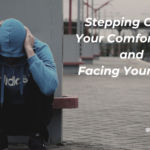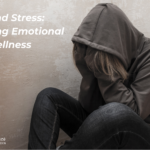In today’s challenging times stress cause high blood pressure is not a new thing! After all, when you are anxious, you can get stressed. Take note that when you have crippling stress it leads to high blood pressure, you feel overwhelmed and ill. Nonetheless, what about how stress causes high blood pressure you need to understand and be mindful of?
Most people assume that stress causes high blood pressure but they dont understand the long-term effects on their physical health. However, in reality, it is not an essential cause-and-effect connection.
Can anxiety and stress cause high blood pressure?
Not exactly. Panic attacks or high anxiety can cause temporary high blood pressure as the pressure build-up, and you feel overwhelmed. However, people who have anxiety disorders tend to develop hypertension, as they have been living in that continuous high-pressure state. If you struggle from constant anxiety, then this can lead to blood vessel damage, putting stress on the kidneys and heart. Hence, you end up with feeling stuck in the anxiety loop leading to long-term effects on your physical health.
Another problem is that individuals suffering from anxiety disorders are more likely to take on unhealthy habits to relieve their symptoms. These include drinking alcohol, smoking tobacco, and overeating. If you do not recognise your anxiety and stress, then this can result in hypertension.
Things you can do if you have anxiety
Nearly everyone suffers from some level of anxiety. Does your anxiety bother you more days? Maybe It’s interrupting your daily life. If That’s the case, you may be suffering from an anxiety disorder.
Does your blood pressure go up and down with changes in your anxiety levels, but It’s typically in the normal range? Then you should not require any medicine for high blood pressure. If you happen to have anxiety and blood pressure, then you must seek a treatment regimen that helps.
Treatment with hypertension often includes a blend of dietary changes, medication, and exercise. Apart from visiting your doctor regularly, here are some tips on how to lower blood pressure instantly.
- Limit alcohol
Consuming too much alcohol isn’t good for your health. Any amount of it can make your anxiety worse. Drinking alcohol in moderation will help you keep stress causing your high blood pressure and chronic anxiety at bay.
- Get enough rest
Sleep is vital to your overall health. Did you know that your heart needs to work harder to pump blood to the rest of your body when you’re sleep deprived? Lack of sleep can increase your anxiety too.
- Meditation
Doctors will agree that activities teaching you to concentrate on your breathing are essential in reducing anxiety and blood pressure. Breathing deeply and slowly helps your heartbeat slower. That not just causes less stress on the heart but helps lessen the physical signs of anxiety.
- Exercise regularly
Exercises free hormones in the body helps reduce blood pressure and anxiety. Exercising for fifteen minutes or thirty minutes per day can useful. That can be as easy as walking your dog to the park.
It’s important to learn how can stress cause high blood pressure and dizziness. Short episodes of high blood pressure and anxiety do not cause hypertension. But if they happen, they can be detrimental to your overall health. We hope you find useful tips on how to lower blood pressure. If you’re worried about your anxiety levels, call me, and I can help you reduce your anxious episodes now.
If you are struggling with challenging times of getting rid of anxiety – ready more here: get in touch with me to Book your complimentary session.
Can stress cause high blood pressure and dizziness and have an impact on your life that you never thought, so time to look after yourself.










